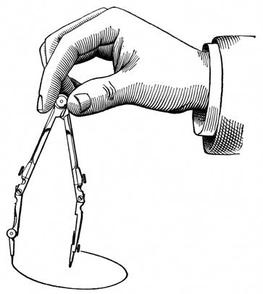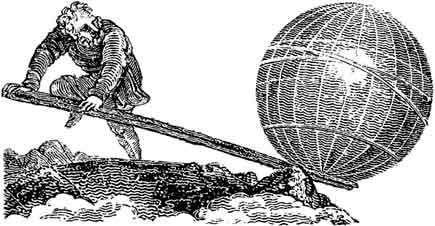 Dear Strand Baptist and friends I do hope that you are all enjoying some down-time with your family during this season. What a grace it is that many of us do not have to go into work but can rather leisurely enjoy ourselves at home. No matter what many say about 'Christmas', it is still a season of blessing to so many. Long may it last! As many of you may be expecting, this is my last Pastor's Weekly. This is because this coming Sunday will be my last Sunday as pastor of Strand Baptist Church - and you are all invited to attend as I take my leave as pastor of SBC (9:30am -). Starting from January, I will be taking up a lecturing position at the Cape Town Baptist Seminary. So for us this is a very significant season of transition. Regarding our whereabouts, Heather and I will be staying in our home in the Strand at present and I will be commuting into Cape Town. From living right next door to my work to now working 35 km away from home is rather different, but the travelling is still worth while for us, since we love our home, church and location. Yet we are not our own and we look to our Lord to lead and guide us forward. As mentioned, the Pastor's Weeklies will not be continuing. However I will probably still be writing some similar weekly reflections of some sort. If you are interested in still receiving something from me ('Paul's Pondering' ?, not sure yet what I will call it), please would you let me know via email. Just say something like: please include me in your future reflections. If you do not do this I will not be putting you on the new mailing list. I also need to let you know that I now have my own website, which is very much in embryo at present. It is aimed at hosting some of my thoughts & reflections in general. It will also be a resource for my students at the Seminary. See www.logia.co.za. Well, what can I say about my Pastor's Weekly? I think it fitting to mention to you what I said in my first Pastor's Weekly (the message is pasted below in its entirety). The date is lost on me, but it was written somewhere at the end of 2010 (ps, thanks to Ann in the SBC office who has faithfully printed and documented all 80 of these pastoral emails). That first email was about crafting a personal life-motto that could encapsulate the motive of one's life. This is important for as Christians we are called to live for something greater than our own survival. My crafted motto was "One for all, and all for One", as per 2 Cor 5:14-15. In that text the wise apostle reasons that since Christ died for all, we are called to live for Him. Since He has redeemed us from eternal death we are eternally obligated to Him and should respond by letting the short little current of our ebbing life flow out and spend itself on the Person of our Blessed Lord and Saviour Jesus Christ. So after 3 years of my emails would you not join me is saying "Yes" to Christ, and through all our failures, weaknesses and times of stubbornness and through all that you have experienced in the passage of time, by His sheer mercy, let us continue to direct our life's flow into the Alpha and Omega of all things. There is no other besides Him! May Jesus ever be the joy and hope of your soul. In that Name, Pastor Paul Hello SBC and friends
On Friday morning, all South Africans awoke to the not-so-unexpected-news of the death of the first democratically elected president, Nelson Mandela. In this one man the political hopes and ideals of millions of South Africans have converged and found an articulate expression. Not only nationally, but also globally, Madiba has been the icon for the ideals of much of the Western World: political freedom and personal equality for every citizen, regardless of gender, race and religion. Thus the flood of a public and deeply felt sympathy that we witnessed today is truly fitting for all that he stood for in this painful yet beloved country of ours. Only the most hardened can not offer up a heartfelt prayer to God for giving the country such a leader at her most important hour. I hope you have done that already. As Christians we know that the real problem remains and that Mandela has not been able to accomplish the ideals for which he stood for. New laws can be in place (as needed as they are) and a new South African anthem and flag can carry high in the sky our deepest longings for this country yet without the root problem being eradicated. Let me remind you again that what we will always need is not a new South Africa but new South Africans. Neither Mandela nor any man can do. We are all aware that the great gains ushered in in the 1990's have also been accompanied by newer problems. Sexual and violent crime now characterizes our society, and though racial segregation is outlawed infant-murder (abortion) is legislated in the new South Africa . So in one very real sense the sins of the country are as ever present with us though their appearance has changed. This reality that we daily face reminds us that Mandela is not Messiah. We are led to ask then: who then will truly bring lasting and effectual moral change to South Africans? Well, there one: "See My Servant, whom I uphold, My Chosen One, in whom my soul delights; I have put My Spirit upon him; and he will bring forth justice to the nations" (Isaiah 42:1). And who is this one the prophet Isaiah spoke of? On a mountain in Palestine over 2000 years ago, a divine voice from heaven spoke and said of Jesus of Nazareth: "This is My Beloved Son, with whom I am well pleased; listen to him" (Matthew 17:5). So as we pause today and reflect upon the life of Mandela, let us give thanks to God for giving us such a leader to inaugurate the new era in the history of South Africa. But let us also remember the limited and small place that he plays in the things that ultimately matter. Let us remember that Mandela was not able to give us what we need most. Only in the Christ of God will all our deepest and dearest longings find rest and fulfillment. We 'honour the king' as the apostle Peter told us to do in his first letter, but we also declare with him to the Crucified One who was rejected of men: "You are the Christ, the Son of the Living God". Pastor Paul Dear Strand Baptist Church and friends
The City of Man stands today as a memorial to all the achievements of what human beings have done and can do. For everyone who is reading these words, whether on a computer or on A printed out office-copy, the reason why you can do that is clearly because someone has worked hard to produce these methods of communication. We are conveyed from point A to B by the collected wisdom of over 100 years of automobile expertise and industry. We are all borne along in all that we do by the hard earned achievements of previous generations. They have made us what we are today. And then comes Romans 9: 16 and says: "So therefore it does not depend on the one who wills or the one who runs but on God who has mercy" The perspective and work of God is deeper and broader than any of us can fathom. The famous Christian thinker and bishop, Augustine brilliantly said: "God is more truly imagined than expressed and He exists more truly than imagined" Here in Romans the inspired apostle plainly declares that the ultimate Person who is behind everything in this world of ours is God. Just as all the activity of human beings and all their accomplishments depend absolutely upon invisible nitrogen, oxygen and argon, so we are dependent upon the invisible God more than we are aware of. Here is the very important fact: Without God dealing with each person alive on this earth today through His mercy, the entire human race would cease to exist. If the pure and holy justice of God were to come directly to us without going via the Cross, every human being would be damned in Hell forever. We are not worthy to be on God's good creation in the light of how we treat Him. 'All have sinned and fall short of the glory of God'. If God had to recall His spirit dealing in each human being, there would be no accusation of injustice from the council of heaven. This is a sobering truth that should cause us to walk humbly all our days. Since the above is true all that is allowed to exist exists only because of the merciful pleasure of God. Since our appeal to rightness and fairness would only land us all in a place of banishment, that we are not there is because He has tempered His justice by His mercy. 'He has not treated us as our sins deserve'. Paul said earlier in Romans that this mercy and forbearance of God toward the world is meant to lead us to repentance (2:4). Sadly, it does not but only makes human beings doubly guilty. But the benefits of the Cross of Jesus still remain with every human being for God chooses to temporarily suspend His justice - which cries out for immediate fulfillment - on the godless for every second of their existence. Praise God for the Cross of Jesus Christ! It is the divine origin of the active mercy of God toward us right now. It only the world was more aware that it is not lungs that are allowing them to draw their next breath, but a merciful God! How much more is it an act of mercy and grace that we should be called sons of God! How come we, who are more adept at sin than righteousness and are the ones who still go on eating the forbidden fruit, how come we are in such a place of grace with God? How can it be that we are the elect of God, the apple of His eye? This cannot be! Oh, but in Jesus Christ it is so! By grace alone and through the kind intention of God in every aspect of our faith in Christ, God has been forming and planning good things for us - by grace ALONE. As much as dead Lazarus was given new life through the word of the merciful Christ, so Christians have been given new life through the gift of another. It all depends upon the MERCY OF GOD. How in debt are we to that Cross of the Lord Jesus Christ! Come, and receive light and life under its shadow! See you Sunday, God willing. Pastor Paul A Reliable Portrayal of God? 'The Shack' (2007) remains a popular read among many Christians despite serious theological problems. Below is a review by Paul Hartwig.' Story Outline: William P. Young (the writer) has presented his view of God in the form of a story. His theology is worked out in the midst of traumatic circumstances, tough questions and raw emotion. The ‘Missy’ story provides the perfect setting for the question: “Where is God when bad things happen… why doesn't He intervene?” We feel the need for this answer in the face of serious illness, accidents and broken relationships but the urgency and raw pain of the question reaches new heights when an innocent child is abducted and murdered. The author has thus chosen an engaging story-frame for setting forth his own journey toward explanation. Mackenzie (Mack) Allen Phillips’ youngest daughter, Missy, is abducted during a family camping trip. The subsequent evidence supports a verdict of murder by a serial murderer whose victims’ bodies are never found. He identifies himself by leaving a Ladybug pin at the scene of the abduction. Four years later Missy’s family remain in a state of brokenness. Kate the older daughter is emotionless and withdrawn as she believes it’s all her fault. Mackenzie wears his sadness like a heavy coat that dulls his eyes and stoops his shoulders. Due to his own painful childhood experiences he has never enjoyed a close relationship to God... definitely not anything like his wife’s spiritual intimacy which has her calling God “Papa”. Mack cannot relate the love and trust inherent in this name to the God he thinks he knows. Then on a snowy afternoon when the postman didn't come (due to weather) Mackenzie finds a note in the post-box inviting him back to the Shack for a weekend… the note is signed “Papa”. Against his better judgement Mack arrives at the Shack on a wintry afternoon and relives his worst nightmare… This is where Missy’s red dress that she was wearing on the day of her abduction was found. The telling blood stain is still visible on the floor. Back in the Shack, Mack shouts out his grief, anger and frustration to a seemingly absent God… In Mack’s estimation, God isn't any more present now than he was on the day of the Great Sadness. Emotionally drained Mack rises from the floor of the Shack to slowly walk back to his vehicle. The cold of the day is numbing when suddenly a warm wind blows from behind. Mack turns to find the world of the Shack transformed into a pristine scene of spring glory! The Shack is now a beautiful log cabin with smoke lazily twisting out of the chimney. Appetizing aromas waft from the kitchen. This marks the beginning of Mack’s encounter with a God, presented to him in the form of a fat, motherly, Afro-American lady, a 30-ish Middle Eastern man, and a mystical Asian woman (Papa, Jesus and Sarayu) – the author’s humanized representation of the holy Trinity. Mack ultimately receives answered questions, emotional healing and a restored God-ward relationship. William P. Young presents his theology through the medium of Mack’s personal encounter with God. The author’s presentation of God certainly breaks through our religiosity and unconscious stereotypes but we have to ask the question: is his portrayal God-honouring and true to God’s self-revelation in Scripture? The Good: The book effectively shows that we all try to make sense of the world and our experiences from within a very narrow and personalized perspective. Our definition of good and evil is often very subjective and ignores the fact that God has a different, broader picture. The book challenges our ability to accurately interpret our circumstances and judge the reality of God’s love and trustworthiness. The book emphasizes the importance of seeing God as good and loving if we are to really trust him. The book also highlights the truth that God’s unconditional love is not performance based – it cannot be earned. Mack’s dialogue with Papa (God the Father), Jesus and Sarayu (the Holy Spirit – Hindi for wind) brings out our tendency to live either regretting the past or worrying about the future. Our attention and energy is seldom fully employed in the NOW. We were made for the present and yet too often miss it in the midst of our preoccupations. The Bad: Mack meets a fully humanized trinity. God is clothed in the human flesh of an African American woman who epitomizes motherly warmth, nurture and love and goes by the name Papa. Jesus is a man of obvious Middle-Eastern decent with a distinctly Jewish nose, and the Holy Spirit takes the form of an Asian woman is the only person to retain the divine aspect being more than human. This presentation of God in the form of a woman (rather than a man) is explained as God adapting himself to Mack’s inability to relate to a father figure - his earthly father having been a violent drunkard. This suggests that psychology is the main hindrance in our relationship with God – not sin. This leads to a distortion of the biblical diagnosis of our human problem. The god of the Shack rejects Mack’s belief that god would express wrath or anger toward sin. god would never send anyone to hell. god declares “I do not need to punish people for sin. Sin is its own punishment, devouring you inside. Its not my purpose to punish. Its my joy to cure it.” (p120) The general message is that everyone has emotional and circumstantial trauma influencing their evil deeds and bad choices... god wants to heal these hindrances and restore relationship and wholeness. So the Papa figure in the story provides us with a haven of homely comfort as she nurses our hurt and pain. On the contrary, the Bible tells us God is angry with sin; that His wrath is righteous; that there is punishment apart from sin’s natural consequences; that the way to restored relationship is by repentance and faith in Jesus’ death on the cross; and that Jesus bore our sins on the cross so that forgiveness does not compromise God’s holiness. This full Gospel message is sadly missing in the Shack dialogue. The only mention of the cross in the book refers to Jesus cry of abandonment: “My God, my God, why have You forsaken me”. This cry is explained as merely a sense of abandonment, that also identifies with our sense of God’s absence in the midst of difficult circumstances. This reduces the Cross to subjective feelings rather than upholding the truth that Jesus bore our sins and took the punishment that brought us peace with God. (Isaiah 53:5) Why does God call Himself Father? The Biblical revelation portrays God as Father not as a gender distinction but to represent His authority - a concept the author very definitely rejects. The god of the shack has no desire to be authoritative, which he sees as completely incompatible with true relationship. Authority is depicted as a system imposed and propagated by the Fall. The godhead of the Shack dismisses the idea of any inter-trinity authority, amidst giggles of disbelief. The author’s idea that true relationship does not exist where one party has authority over the other is simply not Biblical. His idea that relationship is circular and never vertical is not true in terms of the Godhead, God and man relations, and man/woman relationships. Scripture continually supports an internal authority in the Godhead and appropriate God-ordained authority and submission in human relationships too. (1 Cor 11:3 “But I want you to understand that the head of every man is Christ, the head of a wife is her husband and the head of Christ is God.) Here the authors ideas may be culturally palatable, yet the Biblical pattern is clearly otherwise and remains offensive. During dialogue with Mack the god of the Shack states “I am not a selfish little deity seeking my own glory.” However the God of Biblical revelation declares “For my own sake, for my own sake, I do it, …. My glory I will not give to another.” (Isaiah 48:11). This Old Testament reference is carried forward in the various New Testament doxologies and particularly in Ephesians where we are told that Christ’s sacrificial death effected our forgiveness from sin and was done for the display of God’s glory. (Eph 1 & 2) This truth is not strange to those who have a deep confidence that God’s glory is our path to true joy and meaning. The author prefers the idea that we are the pinnacle of God’s purposes - he can only believe in God’s goodness and love if God’s reason for being is us. Getting ones mind and heart around the fact that God’s passion for His glory (i.e. holiness, justice, righteousness….) is essential to our security and happiness is almost impossible in our self-absorbed culture. The Shack presents a culturally compatible god, a Papa in the kitchen rather than a holy God seated on a throne in heaven. The book shows a serious loss of the concept of Majesty. Along with this lamentable absence of majesty, God’s sovereignty is also downplayed in an attempt to uphold authentic human freedom. The god of the Shack says, “We respect your choices and work within your systems.” He does not hold ultimate control and lacks power and initiative as he honours our choices while somehow working them into his purposes. The Bible presents God as the all-powerful initiator and executor, declaring “I am God and there is no one like Me, declaring the end from the beginning, and from ancient times things which have not been done, saying ‘My purpose will be established, and I will accomplish my good pleasure’.” (Isaiah 46: 9-10) Mack’s god presents an impoverished view that does not hold true to Biblical revelation which contains the tension between God’s sovereign power and human freedom. Denying God’s control may seek to vindicate his non-intervention in horrific circumstances but this neglects the writers good point that our perspective and solutions regarding evil are insufficient. The Cross is the only solution that confronts man’s sin, deals with it justly and grants forgiveness where there is repentance. What God says about sin in the Bible does not fit the authors picture of a god who has nothing to say about moral accountability. Nowhere in this theological dialogue is Mack asked to repent and ask Papa for forgiveness for sin (remembering that Mack murdered his father). The main purpose of the book’s incredible dialogue with god is the uncovering of Mack’s lack of trust in god’s goodness. Mack’s extraordinary experience ultimately changes his views about god and helps him learn to live loved. This is a gospel of emotional healing where we find a heavenly mom who can offer no more than a withered and dry bosom. Other Problems The author downplays the role of the church and he dismisses any seminary training; Mack went to Bible College but learnt nothing about God. In the seminaries they may not put God in a box but they do keep Him in the book. I would agree that knowing God is not confined to facts contained in a book, for God is real and active. However, I fear the author dismisses God’s self-revelation contained in the Bible as he contradicts or ignores what God has said about Himself in this book. If reading books and studying about God is ineffective, why does the author himself write a book about God? Finally, the author has Jesus saying that he will travel any path (religious, political, ethnic etc) to find God’s children and that it is not his purpose to make people ‘Christians’ but to join them in their transformation into children of Papa. It is hard to decided whether this is actually a form of religious pluralism (‘many roads lead to god’) or a form of universalism (‘all will be saved in the end’)? The authors studied ambiguity allows much to be desired and imagined. The use of ‘Papa’ in addressing God is also highly questionable, if not disrespectful of our Majestic God. Although it has been popular to say that ‘Abba’ is an Aramaic word similar to our ‘Daddy’, the language of Jesus’ day was more respectful than familiar. ‘Dear Father’ a better modern equivalent than the sentimental ‘daddy’. The Shack is typical of our casual culture. God is no longer found in the Church or prayer room but in the kitchen and out hiking; not worshiped with reverence and awe as transcendent. Instead, we ‘hang out’ together enjoying coffee and cookies, whilst god listens to mp3 music that is definitely not ‘Christian music’. The God and Father of our Lord Jesus Christ is not the all-too humanised ‘papa’ of William Young. Pastor Paul. Dear SBC and friends
What does the word 'inheritance' bring to your mind? Rather than a dictionary definition, we most likely think of patrimony and what was or will be left to you of your parents possessions. Most generally, the word refers to all that is legally passed on to the children after the death of their parents. It speaks of a great loss to one and a great gain to another, of great cost and great grace. So it is a very richly textured word that we all can relate to, though into different degrees. Did you know that the Bible, in both the OT and NT, speaks much about inheritance? In the book of Joshua we see Israel receiving the inheritance of land from God. He gave them the land as a gift after they had come out of Egypt. All the tribes, except Levi, received a portion of Palestine. God was to be Levi's inheritance. In the NT there is also an inheritance that the church receives. Since a death has taken place, the people of Christ receive an inheritance from Him. This inheritance is one of salvation, in the most comprehensive sense of the word. Our inheritance is all the rich blessings that Christ died to bring us, from initial salvation to the final salvation of our bodies at the resurrection: the entire fruits that bequeath to us from His death. It is all that is in Jesus for us. Yet Scripture is very clear that your spiritual inheritance is not automatic. It needs to be possessed and made ones own. This is clearly seen in the book of Joshua, where the tribes had to go into the land and dispossess the Canaanites, and make their own by faith what God had legally promised to them by His word. Likewise in the NT. Paul thus says: "And now I commend you to God and the word of His grace, which is able to build you up and give you the inheritance among all those who are sanctified" (Acts 20:32) Here Paul states that God's Word is the vehicle to bring us into all that He has for us. The Word is able to give something to you, able to give you your inheritance. As it richly abides in us and as we know all that Christ died to bequeath to us, so we can respond in faith and obedience. Oh what a blissful idea! Our great Heavenly Father has an earmarked inheritance for you now that His Son has died! It is a divine gift that waits to be appropriated. It includes intimacy with God, experiences of His Spirit, fellowship with Christ, victory over sin, opportunities of service in the Royal Household, the replication of the image of Jesus in you.. and so much more. Notice here that it is not through meritoriousness or moral goodness that we quality but through 'the Word of His grace'! - for inheritance is all about a gift of grace from another. That's good-news (Gospel) for all of us. May you know that in Christ Jesus and in His cross - and only through them- you have a special inheritance from God. No matter how much you know you don't quality through sin, through His Son's death 'the Father has qualified you to share in the inheritance of the saints in light' (Col 1:12). Knowing this, we need to press into it and 'to press on to take hold of that for which Christ Jesus took hold of me' (Philip 3:12). The Promised Land lies before you - and their is a piece of it allotted just for you! Go up and inherit it in Jesus Name! Under the greater Joshua, Pastor Paul  Dear brothers and sisters. A good few years ago I preached a series of messages called 'Cultural Chameleons', in which I pointed out some cultural values that expose us to the risk of a fatal contamination. The Word of God exhorts us to keep ongoing vigilance against the ungodly and dangerous assumptions of our culture, saying in 1 John 2:15 'do not love the world or the things in the world'. What this well know Bible verses says is one thing, but what it means for us today is another. In the past few Pastor's Weekly's I have been pointing out some aspects of our culture that we need to sit up and take note of, and immunize ourselves against. The cultural trend I want us to briefly consider is The Time of the Spectator. Are you not aware of how much today entices us into the position of passive viewing? Consider a filled stadium crowded with observers waiting to be entertained by some event. Today, that spectator-experience is now delivered on-tap for us in our own homes and wherever we go (without the inconvenience of having to physically be at any event). We have access through a variety of media (internet, TV, smart phones etc) to a whole world full of engrossing activities whenever we want. What a time we are living in! I do not so much want to judge what is available for us to watch today, but I want the spotlight of your awareness to fall on how much we are tempted today to take up the posture of the irresponsible spectator before modern media. This particular temptation is not new (the exponential bombardment is!). In the book of Proverbs the same temptation appeared in a different form. In chapter 7 and 8 the father warns his son not to be enticed by the 'grass-widow' seductress but rather to dearly embrace and follow Lady Wisdom. The 'simple' fool naively follows the attraction that is before his eyes, listens to her promises of 'entertainment' and passively follows where she leads. The father urges his son to choose rather to follow Lady Wisdom, 'who dwells with prudence and possesses knowledge and discretion' (8:12). 'Don't just follow passively what your eyes see son', the father says, 'but rather listen to the voice of wisdom and wise counsel. Guard your eyes and and choose to follow in the path of wisdom'. Though a different time and example, the urgent call of Lady Wisdom for us to responsibly follow in the paths of prudence and discernment is what we so need to hear and obey in our time. I think that in all that is brought before our eyes today, we need to have 'minds that are alert and fully sober' (1 Peter 1:13) so that 'we may be able to discern what is best and may be pure and blameless for the day of Christ' (Philippians 1:10). This translates into subjecting all the media into the position of a good servant, and not allowing ourselves to passively take up the posture before it as a master. It will mean saying No to mind-filleting viewing and Yes to viewing that helps us to better understand our world and our responsibility within it. I personally believe that this must entail more active reading and less passive viewing. Unnecessary 'spectatoring' enfeebles the mind and leads it down the comfortable and wide road that leads to destruction. Necessary reading cultivates and strengthens the mind and leads down the road of life; it engages us in a way that makes us more human not less. So friend, consider the temptations that are on offer today. Be aware that you need to make a daily responsible choice to engage your faculties more than pamper them. Let us keep our focus on loving and serving real other people in Christ's name, engaging with our families over Scripture and good literature, and keeping vital contact with our Father in prayer. Let us embrace with call of Lady Wisdom today. In Christ, Pastor Paul
First, what is the prosperity theology/gospel? It is teaching given by many pastors, authors and many TV preachers who use the Scriptures to state that God's wants each of His children to experience physical health and financial wealth. The corollary of this is that if His children are not experiencing this, there is a problem in their relationship with the Lord. The word 'gospel' is used since 'gospel' in the Greek means 'good news'. Christianity thus becomes the 'good news' of God's promise of your spiritual, physical and financial well being. Secondly, we need to be aware that this is another 'cultural moment' we are experiencing in the history of Christianity, and is strikingly different to what has been preached over the centuries in the church. Today our religious expectations have piggy backed the gains of the world (which offers health and wealth to us all), and even if we do not hold to the prosperity teaching, at bottom most of us assume that if God had His way with us He would heal our bodies and fill our wallets. Are not most of our testimonies of God's work in our lives about how we have been provided for in these realms? His faithfulness or goodness commonly translate to mean health and wealth. This is also the reason why many people serve God and believe in Him: to be spared physical and financial suffering. What Al Mohler was wanting to point out was that if we believe that our health and wealth are the main concerns of God in the Gospel of Jesus Christ, we have an impoverished perspective of His work and are missing the heart of what is on His agenda for our lives. Traditionally (and correctly) God's main intent for us now in this life is not our health or wealth but our holiness, i.e., to be like Him. The greatest gift and the most urgent work of God is simply not physical blessing; This is clear to all in their most sane moments when they ponder what their greatest needs are. What is the greatest thing that a Christian would want for her children? Is it not to know Christ, and for them to reflect His character,and to live a life pleasing to God Almighty? Because of the fleeting and temporal nature of our present bodily experience, it is not ultimately their best life now that we want for those we love but their best life in eternity that we want for them! Does not the entire New Testament warn us that if we aim at beautify bodies and bounteous bank balances, we will move away the Gospel and not closer to it? Consider the words of Jesus in Mark 4:18-19 and also those of His apostle in 1 John 2:15-17: Still others are like the seeds sown among the thorn bushes. These are the people who hear the word, but the worries of life, the deceitful pleasures of wealth, and the desires for other things come in and choke the word so that it can't produce a crop. Stop loving the world and the things that are in the world. If anyone persists in loving the world, the Father's love is not in him. For everything that is in the world—the desire for fleshly gratification, the desire for possessions, and worldly arrogance—is not from the Father but is from the world. And the world and its desires are fading away, but the person who does God's will remains forever. Of course we trust God for our provision in every area of our lives, and we ought to testify to His faithfulness in caring for us in the material areas of our lives. BUT, we must know that there is a higher purpose that He has with us in this life. He wants us to 'share His holiness' (Hebrews 12:10). His purpose is for us to be like Jesus (Romans 8:29). He want us to not settle for temporary things but rather be willing to 'accept joyfully the plundering of our property, since you know that you yourselves have a better possession and an abiding one" (Hebrews 10:34). When we consider 'the prosperity gospel' in the light of the New Testament, it is revealed as a devilish and deceitful distraction to the people of God. For Christians passing through Vanity Fair on his way to Celestial City, they are always tempted to stay and enjoy all the blessings of the world. Some have mistakenly thought that this was God's voice that beckoned to them, but it is not. Rather, may we, like John Bunyan's Christian, also 'set our eyes on the things that cannot be seen' (2 Cor 4:18) and aim at the 'pleasures which are in His right hand' (Psalm 16:11). In His priceless Name, Pastor Paul Dear Strand Baptist and friends
I want to write a few words to you today about congregational singing; and the godly idea I want to highlight is 'singing psalms and hymns and spiritual songs, with thankfulness in your hearts to God' (Colossians 3: 16). The reason I would like to briefly ponder this verse is because of the fact that in our contemporary Christian culture today the voices of God's people are being drowned out by electronic technical instruments. This biblical injunction needs to be heard afresh today in the light of trends in the church. When Heather and I visit other churches when away from SBC, one of the most startling things is the level of church music. On the Sunday prior to my return to SBC I visited a nearby church, arriving 15 minutes before the service (making sure I practice what I preach!). Though there was not a band, there was some 'foreground' music playing. It was so loud I struggled to hear the people welcoming me and had to nearly shout to be heard! Time and again I have been noticing that a shift has taken place in many churches, where the band is taking the centre stage and the congregation a back stage, the instruments dominating the voices of God's people. Naturally I was glad to be back at SBC! Now, let me say that this is not a sign that I am loosing touch with 'where things are at' today or am just making a personal judgment where there should be liberty and tolerance. No, the fact is that the way of doing church in too many churches is determined more by the culture of the world than the culture of the Word. Congregations are turning into passive audiences instead of active singers. For this reason, I am becoming more and more convicted that congregational singing needs to become the dominant method of music in the church today. Of course that does not mean that instruments are out (or that I am rationalising our present situation at SBC) it just means that music must subordinate itself to the voices of the people of God rather than supplant them. Too often the 'band' has been the tail that wags the dog in congregational singing. I think there needs to be a singing reformation in today's church when God's people will not be happy with the method of music in the church unless the voices of the congregation can be heard above the music. This will reverse the present trend where the style of music becomes the key criteria either for keeping people in a particular church or else for sending them away. It will also facilitate the important biblical (and baptist) conviction that the gathering of God's people is an act of Christ-like active service to all, and not a passive observation by the many of the few. In the open-heaven visions of the book of Revelation, we have many glimpses of angels in heaven singing the praises of God and the Lamb, but no instruments. So, let's begin to prepare for going there and come this Sunday to sing from our heart the high praises of the Lord. Love in Christ, Pastor Paul  Dear Strand Baptist and Friends, When Archimedes, the Greek mathematician, working with a simple lever, said, “Give me a place to stand on and I will move the earth”, he was asking for a base for his lever’s fulcrum necessarily outside the cosmos. When asked for an illustration of his contention that a very great weight could be moved by a very small force, Archimedes apparently used a large and fully laden ship and to have employed a mechanical device by which any man was enabled to move it himself. The power of leverage! Now a fulcrum is a firm centre base that can support and implement a mechanism used to move another object. It is succinctly defined as ‘the point or support on which a lever pivots’. But here is the issue: in order for the lever to lift an object, the fulcrum for the lever must be outside of the object it is acting upon. I hope this is not either labouring the obvious or ‘mist-ifying’ (that’s not a spelling mistake!). Do you likewise look for the fulcrum of life, that has the ability to lever your life above your present cul-de-sac’s and treadmills, burdens and bondages? Now the Cross of Christ is such a fulcrum, and in preparation for Good Friday it will do us good to be in awe of its peculiar power. The Cross is a veritable power and truth that stands rock-like and safely outside of us, eternal in the heavens. Paul says, ‘For us who are being saved, the cross is the power of God’. The message of the cross has the power to transform us and pull us out of ourselves, into that other world around us where, ‘behold, all things have become new’. It is in that unique book of Hebrews that this ‘alien’ message is sounded out. Let us turn our minds and hearts there. As we read chapter 6, we hear the writer say, ‘we have this [hope] as a sure and steadfast anchor of the soul, a hope that enters into the inner place behind the curtain where Jesus has gone.’ As Jesus took His shed blood into heavens holy of holies, He was completing something on our behalf, doing something eternal and infinite for us outside of us, outside of humanity, outside of the earth and universe, but inside the very presence of God. And what did Jesus do once He had presented His blood as His provision for the responsibilities of all our sins? He sat down, waiting until His return. Oh, the cross of Jesus and the finished work of Christ for the world. Not the wood, or the physical agony, or the supposed magical qualities of the blood of Mary’s son – but the life which He gave up in death as an offering for our sins. He took all our guilt and sin, and having borne the reproaches of God that should have fallen upon us, He accomplished atonement (‘at-one-ment’) and reconciliation and cleansed the heavenly realms for us, once and for all. The writer in Hebrews clearly states that Jesus has now ‘made purification for sins’ (1:3), has ‘PUT AWAY sin’ (9:26). The Greek word used for ‘put away’ (athetesis) is only used twice in the entire New Testament, here and also in 7:18. In chapter 7v 18 (read it please) it is used in the sense of ‘to set aside’, or ‘abolition’ or ‘set at naught’ – for the Levitical priesthood is no longer necessary, it is obsolete. Through His Cross, he abolished the old ceremonial machinery of the Old Covenant. It is a strong Greek word, with our English ‘abolish’ a fitting equivalent. So in the Cross, Christ absolved and abolished the power of sin. Marcus Dodds says of 9:26, “This was the great object of Christ’s manifestation, the annulling of sin, its total destruction, the counteraction of all its effects’. Hallelujah! Where the Old Covenant called sins to mind by the perpetual and regular sacrifices, He sacrificed Himself, once for all, and thus annulled sin (note: as He made purification for sins plural in 1:3, so here in 9:26 His total victory is over sin singular, that is, sin in its comprehensive and total power. Every word of God is inspired!) Absolute atonement was achieved. No higher cleansing can be reached in dealing with sin. Sin was vanquished, set at naught. The curtain is now torn, man can come in Christ before a Holy Father. Redemption is achieved and effected. What a gospel. Regardless of what sin is still doing in the world of men after that first Good Friday period, something final in Christ has occurred. This we must always preach. What good news it truly it! Finally, going back to Archimedes. When king Hieron asked him whether a crown of gold made for him actually contained some proportion of silver, the famous scientist was initially puzzled. Then one day as he was stepping into a bath the solution dawned upon him. He was so overjoyed at the solution in his mind, having been rankled by the problem for some time, that he supposedly ran home without his clothes, shouting ‘eureka, eureka’ (Greek for ‘I have found it, I have found it’). Now readers, when you freshly discover the objective Truth of the Cross, and what it means for you and your relationship to God and the world, I would not be surprised if you did similarly! With love, Pastor Paul A Clear Word From Scripture
Just as there were globally publicized predictions of the End of the world in 2012, there will surely be many more to come. This is nothing new, and for most of the church's history sincere Christians have always fallen prey to such speculations. Yet in response to these delusive predictions, Christians have been sadly rather vague and unclear in their counter-responses. Because there has been no clear word from Scripture in answer to this growing chorus of count-down mentality, the vacuum of ignorance has only exacerbated the problem. I believe that Scripture is unambiguously clear as to how we need to respond to such prognostications and I want you to know how to respond to popular claims that Christ's return is just around the corner. To know how to respond, we need to turn to 2 Thessalonians 2:1-12. Please read it and then be like the noble Bereans (Acts 17:11) who searched the Scriptures for confirmation of what they were told. Here we see that Paul gave (1) a Certain Sequence (2) of Observable Objects (3) as a Defence for Delusion. The church he wrote this letter to had forgotten what he had earlier taught them and had slipped from a sound stable mind into alarmed and agitated instability regarding the Second Coming (Advent) of Christ. Based on false prophecy, words of people, and also a spurious allegation from a letter of Paul, some people were believing that Christ's Advent had already happened. Many people in the church were unsettled and did not know how to counteract this 'new teaching'. Here is the gist of what Paul said to them: 1. The Certain Sequence: Paul made it very clear that Christ's coming and our gathering to Him in the rapture (vs 1) could not happen at any moment but must be preceded by a certain complex of events (notice the temporal word 'first' in verse 3). Since there are certain events in history that must necessary transpire before the Advent, Christ could not have already returned. That is the gist of what Paul declares. No Returned Christ or any-momentism! - since the precursor signs have not happened yet. 2. The Observable Objects: Paul spends most of this section describing the nature of the events that must happen before Christ returns, in order that his readers may (a) know if Christ is not returning yet and (b) know what things will look like on earth if His Advent is imminent Paul describes certain global international world conditions. His words centre around a Satanic parody of the Messiah, a real man who will make his debut on the world scene, who will be personally slain by Jesus Christ at His Coming. This is the Antichrist, the one side of the coin of the expected events. The other side of the coin is the expected 'rebellion' or 'apostasy' which must happen. This Greek word 'apostasia' can be variously translated, dependent on the context it is used. At bottom is means a defection from one position to another. If Julius Malema and his followers had to move out of the ANC and join to DA, the Greek word for that would be 'apostasia'. If thousands of Baptists had to leave their churches and join the Moonies, that would be an 'apostasia'. So Paul's words can speaks of a specific religious 'falling away' amongst Christians or Jews, or in a specific political realignment. Given the context (which is always determinitive for the meaning of individual words) where Paul describes the Antichrist as the 'man of lawlessness' who will appear and receive a global reception, the 'apostasia' is best understood in the broadest sense of a mass exodus from traditional law, order and religion to believe and follow the pretentious claims of this global demagogue. Also considering the context once again, the identity of 'the restrainer' is most reasonably a reference to Roman law and order (which actually saved Paul from being lynched by lawless mobs in Acts 19 and 22). As long as overall lawful governance was in operation in society, the full flowering of lawlessness and autocratic world rule would be keep in check. Overall, the logic of the inspired apostle is that these things are to be unprecedented and observable signs, clear for Christians to see, and that until these historical realities transpire, Christ will not be returning as yet. 3. The Defence for Deceit: False teaching misrepresents the truth and immunizes God's people to the authentic teaching of the Word. Delusive speculations also immobilise and distract us to our present mission in the world. Paul wanted the church to be 'in the know', stable and confident as to these things. He wrote these things as a safeguard to Christians and to enable them to walk in the light of truth, immunized to the current speculations. The teaching is revealed to be known and to support the church a midst a growing world alarmism. My friend, may you hear what the Word is saying on these things. Notice how clear Paul is! Unless we see Antichrist and the his 'abomination that causes desolation' in a Jewish temple, Christ will not return. Paul was teaching exactly what Jesus Himself taught in Matthew 24. Let us hear these words of Paul (and Jesus) afresh, know the truth, and by our service for Christ in this world 'hasten that Day of the Lord' (2 Peter 3:12). Pastor Paul Hartwig |
Topics
All
By Date
April 2024
|






